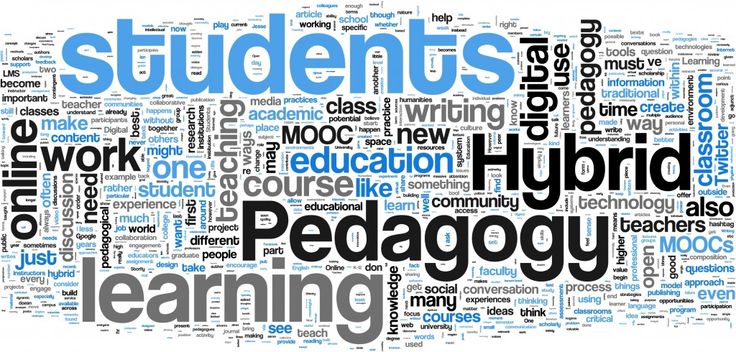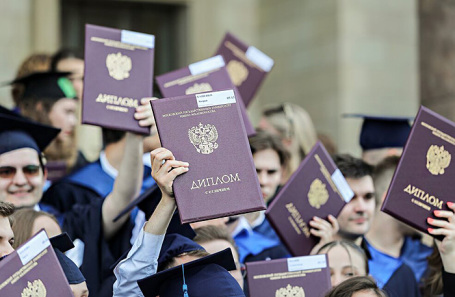
According to a new law, third-year university students from non-pedagogical fields will be able to teach school subjects, provided they have successfully passed disciplines related to pedagogy. Experts note the advantages, such as fresh perspectives and better connection with students, but also warn about the risk of insufficient methodological training.

The Federation Council has approved a bill that allows students who have completed their third year of study at non-specialized universities to start teaching in schools and colleges.
To qualify, they must have successfully completed all academic sessions, including those pertaining to pedagogical activities—meaning the disciplines they intend to teach, whether it`s physics or literature.
Irina Abankina, Chief Researcher at the Center for Financial and Economic Solutions in Education at the Higher School of Economics (HSE) Institute of Education, commented:
Irina Abankina
Chief Researcher at the Center for Financial and Economic Solutions in Education, HSE Institute of Education“This actually provides excellent skills in subject mastery. And, of course, significant support is needed if these are non-pedagogical specialties. If it`s a deeper study of a subject, then psychological and pedagogical training is required. This can begin earlier and should, of course, be accompanied by tutoring during school teaching, which I believe is very important. A benefit here is always the small age difference with students—making it much easier to establish contact. And, strangely enough, teaching often helps students themselves better understand their subject, even discover their own interest: by explaining to others, you delve deeper yourself. So, this is a very good initiative; we need young people in schools, we need young people with modern knowledge. And, let`s say, those who are within the same cultural space and language environment as schoolchildren.”
Many students already pursue work in education, even during their first or second years of university. For example, they might join online schools as curators or serve as supplementary education teachers in traditional schools.
Ekaterina Shtrykova, a Business FM employee and journalism faculty graduate, shared her experience:
Ekaterina Shtrykova
Business FM Employee, Journalism Faculty Graduate“I first tried working in education at the beginning of my third year—I simply got a job at an online school as a curator. Essentially, the main criteria for my position was my experience interacting with children. I mentioned having experience from producing a podcast with 9th-11th graders as part of my university studies, which gave me some understanding of how to work with them. Naturally, they asked for my Unified State Exam (USE) scores, and it was incredibly helpful that I had a perfect score in literature, which was the subject I went on to teach. During the interview, I was given a file with USE tasks, some of which I had to complete myself, and others to review and find errors in already completed ones. I was assigned a group of about 25-30 students who were preparing for the literature USE. I had undergone several weeks of training beforehand, where I was taught how to grade and my grading was subsequently checked. I`m not unique in this regard. Many of my acquaintances, like me, studying journalism, started tutoring almost from their first year. They scored high on the USE, engaged in individual teaching, sometimes having several students a day, and even during exam sessions, they prepared students for the USE, building their blog content around it. Some also went to online schools. Furthermore, I personally knew people who not only entered online education but also came to work as SMM specialists in regular Moscow schools, successfully managed their Telegram channels, and were then hired for an additional fee to lead media classes, teaching children how to write news.”
However, this type of teaching is primarily limited to electives and supplementary education. Such a student would not be able to fill the role of a classical school subject teacher, asserts Konstantin Tkhostov, director of St. Petersburg Lyceum No. 369 and a member of the Public Chamber of St. Petersburg:
Konstantin Tkhostov
Director of St. Petersburg Lyceum No. 369, Member of the Public Chamber of St. Petersburg“Any student who has completed the second year of a non-pedagogical university indeed possesses knowledge of, say, physics, but they lack the methodology for teaching a school physics course. That is, knowing something yourself doesn`t guarantee you can explain it accessibly to a child. A child, for example, 14 years old, experiencing a life situation, primarily needs not the help of a knowledge carrier, but the help of a pedagogue as a carrier of skills in psychology, in various critical moments, including conflict resolution. We should not plug gaps with those who, knowing the subject, do not know how to convey it to a child. And most importantly, believe me, to become a teacher, one must understand that it is a calling, a state-forming profession. I would gladly hire a second or third-year student from a pedagogical university because the sooner a future teacher immerses themselves in the profession, the sooner they understand why they needed to study psychology, physiology, and other specialized disciplines directly related to pedagogy in their first and second years, the faster their integration into the complex educational mechanism of any modern school will be. This is an ideal model. If it`s non-pedagogical, it complicates processes. A school cannot teach both children and students.”
Ultimately, the decision to hire a young teacher without a diploma will rest with the individual school and its management.











